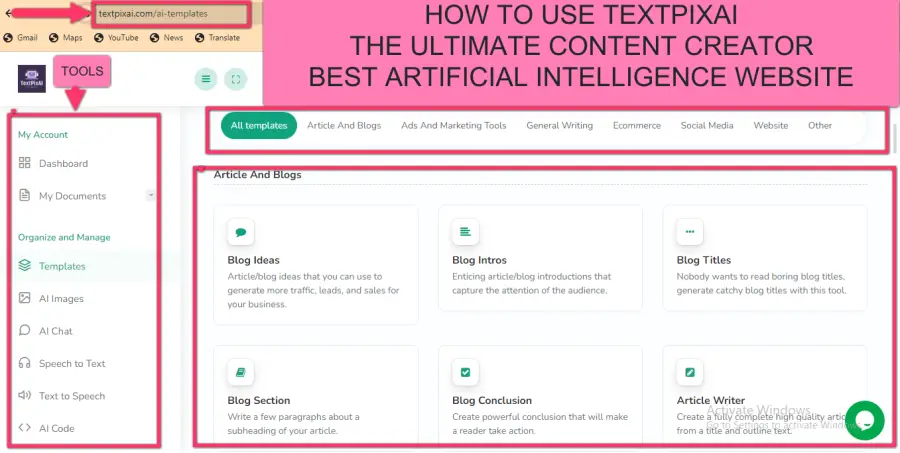Predictive Analytics in Healthcare: Patient Care and Management
Introduction
In an era defined by data and technological advancements, predictive analytics has emerged as a potent tool in healthcare. Its transformative influence extends beyond traditional data analysis, offering the potential to revolutionize patient care, disease prevention, and healthcare operations. This comprehensive guide takes a deep dive into the world of predictive analytics in healthcare, exploring its pivotal role in shaping the future of healthcare.
You may also like to read:
AI in Medical Imaging - Diagnosis and Treatment
Understanding Predictive Analytics
Predictive analytics, a subset of data analytics, harnesses historical and real-time data to forecast future events and trends. In the context of healthcare, it leverages patient data, medical records, and a myriad of other information sources to make informed predictions. Key components of predictive analytics include data collection, modeling, and interpretation, all aimed at generating actionable insights for healthcare professionals.
Predictive Analytics in Healthcare - A Brief Overview
Predictive analytics in healthcare operates on the principle that historical data patterns can provide valuable insights into future health events. By analyzing vast datasets, predictive models can identify risk factors, predict disease outbreaks, and enhance clinical decision-making.
The Role of Predictive Analytics in Disease Prevention
Early Identification of Disease Risk Factors
One of the most impactful applications of predictive analytics in healthcare is early disease risk identification. Healthcare providers can employ predictive models to identify individuals at risk of developing specific diseases based on their medical history, genetics, and lifestyle factors. Armed with this knowledge, proactive measures such as lifestyle interventions and early screenings can be initiated to mitigate disease risk.
Predictive Modeling for Epidemics and Outbreaks
In recent times, predictive analytics has played a pivotal role in epidemic forecasting. By analyzing data related to disease spread, mobility patterns, and environmental factors, predictive models can provide early warnings of potential outbreaks. This allows for timely public health interventions and resource allocation, reducing the impact of infectious diseases.
Improving Preventive Care Strategies
Predictive analytics equips healthcare providers with valuable insights to tailor preventive care strategies. These strategies can be personalized to address an individual's unique risk factors, ensuring that healthcare resources are efficiently allocated to those who need them most.
Predictive Analytics for Clinical Decision Support
Enhancing Diagnostic Accuracy
In the realm of diagnostic medicine, predictive analytics holds the promise of significantly enhancing accuracy. By analyzing patient data, medical imaging, and laboratory results, predictive models can assist clinicians in making precise diagnoses. They can identify patterns and subtle anomalies that might elude even the most experienced human practitioners.
Personalized Treatment Recommendations
The era of one-size-fits-all treatment approaches is giving way to personalized medicine, largely facilitated by predictive analytics. These models consider an individual's genetic makeup, medical history, and treatment responses to recommend personalized treatment plans. This ensures that patients receive therapies that are not only effective but also tailored to their unique needs.
Reducing Readmissions and Complications
Predictive analytics is a potent tool in reducing hospital readmissions and complications. By analyzing patient data, predictive models can identify individuals at risk of readmission and complications, allowing healthcare providers to intervene with targeted interventions and follow-up care.
Real-world Examples
To illustrate the practical applications of predictive analytics in healthcare, let's delve into real-world case studies of successful implementations.
1. Prevent Epidemics with BlueDot
BlueDot, a digital health company, employs predictive analytics to monitor and predict infectious disease outbreaks worldwide. Their platform analyzes various data sources, including news reports, airline ticket sales, and climate data, to provide early warnings of potential epidemics. By identifying emerging threats, BlueDot helps healthcare organizations and governments take proactive measures to contain the spread of diseases.
2. Mayo Clinic's Predictive Analytics for Sepsis
The Mayo Clinic, a renowned healthcare institution, utilizes predictive analytics to identify patients at risk of developing sepsis, a life-threatening condition. Their predictive model analyzes patient data, vital signs, and laboratory results in real time. When a patient's risk of sepsis exceeds a certain threshold, alerts are triggered, allowing healthcare providers to intervene promptly. This proactive approach has significantly improved patient outcomes and reduced sepsis-related mortality.
3. Predictive Analytics in Readmission Reduction
Several hospitals and healthcare systems across the United States have implemented predictive analytics to reduce hospital readmissions. These models analyze patient data, including medical history and social determinants of health, to predict the likelihood of readmission. Care teams can then develop targeted interventions, such as home healthcare services or follow-up appointments, to prevent unnecessary readmissions and improve patient care.
These examples underscore the tangible benefits of predictive analytics in healthcare, from early disease detection to more precise clinical decision-making.
Challenges and Ethical Considerations
While the potential of predictive analytics in healthcare is immense, it also presents a set of challenges and ethical considerations that must be addressed.
Data Privacy and Security
The handling of sensitive patient data is a critical concern in predictive analytics. Healthcare organizations must implement robust data privacy and security measures to protect patient information from unauthorized access and breaches.
Transparency and Accountability
Ensuring the transparency of predictive models is essential to build trust within the medical community and among patients. Healthcare providers must understand how predictive algorithms arrive at their conclusions and be able to hold them accountable for errors or biases.
Addressing Bias and Fairness
Predictive analytics models can inadvertently perpetuate biases present in historical data. To ensure fairness and equity, healthcare organizations must actively work to identify and mitigate bias in predictive models. This includes using diverse and representative datasets and regularly evaluating model performance.
Regulatory and Ethical Guidelines
The development and deployment of predictive analytics in healthcare necessitate clear regulatory and ethical guidelines. These guidelines should encompass data privacy, algorithm transparency, and ethical considerations related to patient care.
Future Trends and Innovations
As predictive analytics continues to advance, several exciting trends are emerging in the field of healthcare.
Advancements in Machine Learning Algorithms
Ongoing research and development are expected to lead to even more accurate and efficient predictive algorithms. As machine learning models become increasingly sophisticated, their diagnostic capabilities will continue to improve.
Integration with Electronic Health Records (EHRs)
The integration of predictive analytics with electronic health records (EHRs) allows healthcare providers to access predictive insights directly within the patient's medical record. This seamless integration streamlines clinical decision support and ensures that predictive insights are readily available to inform patient care.
AI-driven Predictive Analytics for Drug Discovery
Predictive analytics is increasingly being applied to drug discovery and development. By analyzing vast datasets, including genetic and molecular information, predictive models can identify potential drug candidates and predict their effectiveness in treating specific diseases. This approach accelerates the drug discovery process and holds the potential to revolutionize pharmaceutical research.
Remote Patient Monitoring and Telehealth Applications
The COVID-19 pandemic accelerated the adoption of telehealth and remote patient monitoring. Predictive analytics is playing a crucial role in these applications by enabling remote monitoring of patients' vital signs and health status. Predictive models can detect early warning signs of deterioration, allowing healthcare providers to intervene promptly and provide virtual care.
Benefits to Healthcare
The adoption of predictive analytics in healthcare offers a multitude of benefits to both healthcare providers and patients.
Improved Patient Outcomes
Predictive analytics enhances patient outcomes by facilitating early disease detection, personalized treatment plans, and proactive interventions to prevent complications.
Reduced Healthcare Costs
By identifying high-risk patients and optimizing resource allocation, predictive analytics can lead to cost savings in healthcare delivery.
Efficient Resource Allocation
Predictive models assist healthcare organizations in efficiently allocating resources, such as staff, beds, and equipment, to meet patient needs effectively.
Improved Patient Engagement
Proactive care based on predictive insights fosters better patient engagement and satisfaction, as patients feel that their healthcare needs are anticipated and addressed.
Conclusion
Predictive analytics in healthcare is a game-changer, empowering healthcare professionals with data-driven insights to enhance patient care, prevent diseases, and optimize healthcare operations. As healthcare providers and researchers continue to harness the power of predictive analytics, it is crucial to navigate the challenges and ethical considerations associated with this transformative technology.
By prioritizing data privacy, transparency, fairness, and ethical guidelines, the healthcare industry can unlock the full potential of predictive analytics, ushering in an era of healthcare that is more accurate, accessible, and patient-centered than ever before.







